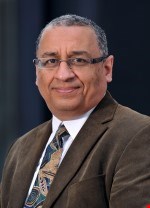
Dr Mohamed Darwish
Reader
Research area(s)
Dr Darwish has contributed to over 200 research papers in leading journals and conferences and two books on \"Notes on Electrical and Electronic Engineering\" and \"The Essence of Electrical, Electronic, Power Electronics and Mechatronics Engineering\".
He has supervised more than 30 PhD and MPhil research students and was the Principle Investigator for several EPSRC, Innovate UK, KTP and British Council grants.
Research Interests
- Power Electronics: Active Filters, Electric Vehicles, UPS Systems, Energy Efficient Snubber Circuits; Multilevel Inverters.
- Renewable Energy System: Solar Energy, Energy Storage, Energy Environment & Economy.
- Electrical Power System: Power System Protection, Relay Coordination, Advanced Electrical Safety
Research grants and projects
Grants
Funder: Innovate UK
Duration: October 2017 - March 2019
This project, which is supported by Innovate UK, will build on already demonstrated technological approach by carrying out industrial research and development between Brunel University and ENERTECHNOS Ltd in collaboration with Eland Cables Ltd and TWI to explore, design and develop Capacitive Transmission Cable (CTC)
Funder: British Council
Duration: February 2017 - February 2017
Workshop
Funder: British Council
Duration: February 2017 - January 2018
The workshop provided a research framework in intelligent energy systems to establish collaborative programs between academia and industry targeting both UK and Turkey. It also facilitated the cooperation and discussion between the participating institutions. This will continue beyond the workshop to provide a useful forum to exchange ideas and develop effective collaboration programs between participants and industry at international level. Personally, organising this workshop has improved my coordination and project management skills. Furthermore, I have had the chance to engage in interesting discussions with participants that may lead to future research. Over four days, the researchers from the UK and Turkey working on different aspects of smart grids showcased their work, discussed cutting-edge research and we all explored how our strengths could be matched for future collaborations. I am expecting this outcome to enhance not only the participants’, but also my research profile.
Funder: Royal Academy of Engineering
Duration: October 2015 - October 2016
Research links
Co-author network
- Dr Chun Sing Lai
- Prof Maysam Abbod
- Prof Asoke Nandi
- Prof Gareth Taylor
- Dr Valentina Stojceska
- Dr Ioana Pisica
- Dr Ahmed Zobaa
- Visualise network
Similar research interests
- Professor Gareth Taylor
- Mrs Elizabeth Bellou
- Professor Arthur Ekwue
- Miss Delia Faris
- Professor Akram Khan
Research group(s)
- IEF
